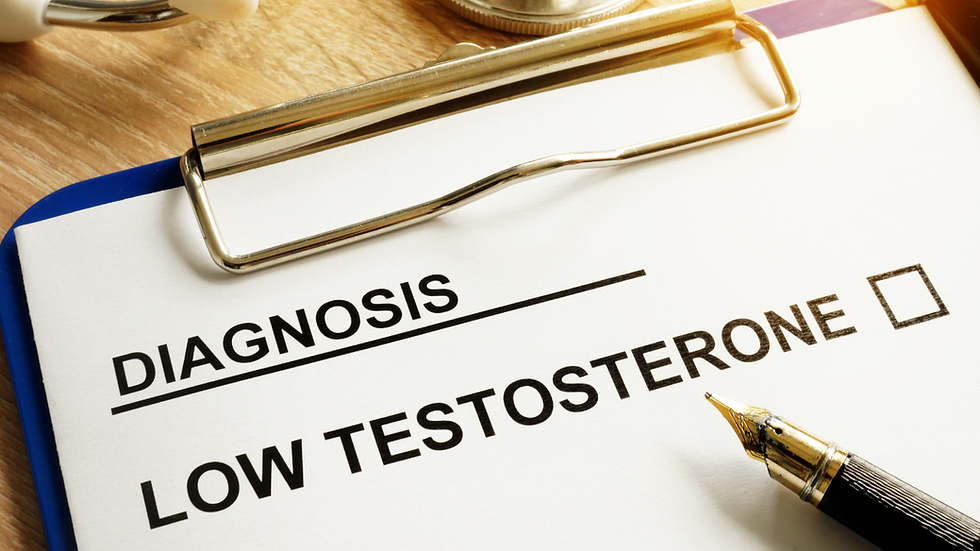Shift Work Struggles: Reclaiming Rest in a 24/7 World
- Regenify Health

- Aug 29, 2024
- 3 min read
Updated: Nov 3
In today’s world, the demands of a 24/7 economy mean that millions of people work outside the traditional 9-to-5 schedule. While shift work is essential for keeping industries like healthcare, transportation, and public safety running, it comes at a significant cost: the disruption of the body’s natural circadian rhythm. This disruption can lead to a host of health problems, including sleep disorders, increased stress, and a higher risk of chronic conditions. But what exactly happens when your body’s internal clock is thrown off, and how can you minimise the risks?

Understanding Circadian Rhythms
Circadian rhythms are the body’s natural 24-hour cycles that regulate various physiological processes, including sleep-wake cycles, hormone production, and metabolism. This internal clock is primarily influenced by light exposure, which signals to the brain when it’s time to be awake and when it’s time to sleep.
When you work night shifts or irregular hours, your circadian rhythm is forced out of sync with the natural day-night cycle. This misalignment can lead to a condition known as circadian rhythm sleep disorder, characterised by insomnia, excessive sleepiness, and a feeling of being perpetually tired.
The Risks of Circadian Rhythm Disruption
Disrupting your circadian rhythm doesn’t just affect your sleep; it can have far-reaching consequences for your overall health. Some of the risks include:
- Sleep Disorders: Chronic insomnia or difficulty staying asleep is common among shift workers, leading to long-term sleep deprivation.
- Increased Stress Levels: Irregular sleep patterns can elevate cortisol levels, the body’s primary stress hormone, leading to chronic stress.
- Weakened Immune System: Poor sleep can impair immune function, making you more susceptible to illness.
- Increased Risk of Chronic Conditions: Shift workers are at higher risk for conditions like obesity, diabetes, cardiovascular disease, and depression.
Given these risks, it’s essential to find ways to mitigate the impact of shift work on your circadian rhythm and overall health.
Minimising the Risks: Practical Tips for Shift Workers
While you can’t always change your work schedule, there are strategies you can implement to help your body adapt and reduce the negative effects of shift work:
1. Prioritise Sleep Hygiene: Establish a consistent sleep routine, even on days off. Create a dark, quiet, and cool sleeping environment, and use blackout curtains or eye masks to block out daylight.
2. Manage Light Exposure: Expose yourself to bright light during your shift to help stay alert, and wear sunglasses on your way home to minimise light exposure before sleep. Consider using a light therapy box to simulate daylight during waking hours.
3. Mind Your Diet: Eat regular, balanced meals and avoid heavy or rich foods close to bedtime. Caffeine should be consumed early in your shift to avoid interfering with sleep.
4. Stay Active: Regular physical activity can help regulate your sleep-wake cycle and reduce stress. Aim to exercise at a time that suits your schedule, but avoid intense workouts close to bedtime.
5. Limit Screen Time: Blue light from screens can further disrupt your circadian rhythm. Limit exposure to screens before bed and consider using blue light filters or wearing blue light-blocking glasses.
6. Napping Strategically: If possible, take short naps during your shift to boost alertness. A 20–30-minute nap can help reduce sleep debt and improve performance.
How the Human RegeneratorTM Could Help
For those struggling with the effects of shift work, the Human RegeneratorTM may offer a supportive approach. This wellness device utilises Cold Atmospheric Plasma (CAP) technology, which has been suggested to reduce cortisol levels and promote relaxation. Lower cortisol levels can help mitigate the stress associated with circadian disruption, potentially improving sleep quality.
Moreover, the Human RegeneratorTM may aid in increasing melatonin production, the hormone that regulates sleep. Higher melatonin levels can help shift workers fall asleep more easily and stay asleep longer, even when their sleep schedule is out of sync with the natural day-night cycle.
While the Human RegeneratorTM is not a cure-all, it can be a valuable part of a holistic approach to managing the challenges of shift work. By combining this technology with good sleep hygiene, light management, and other lifestyle adjustments, shift workers may find it easier to reclaim rest and protect their health in a 24/7 world.



